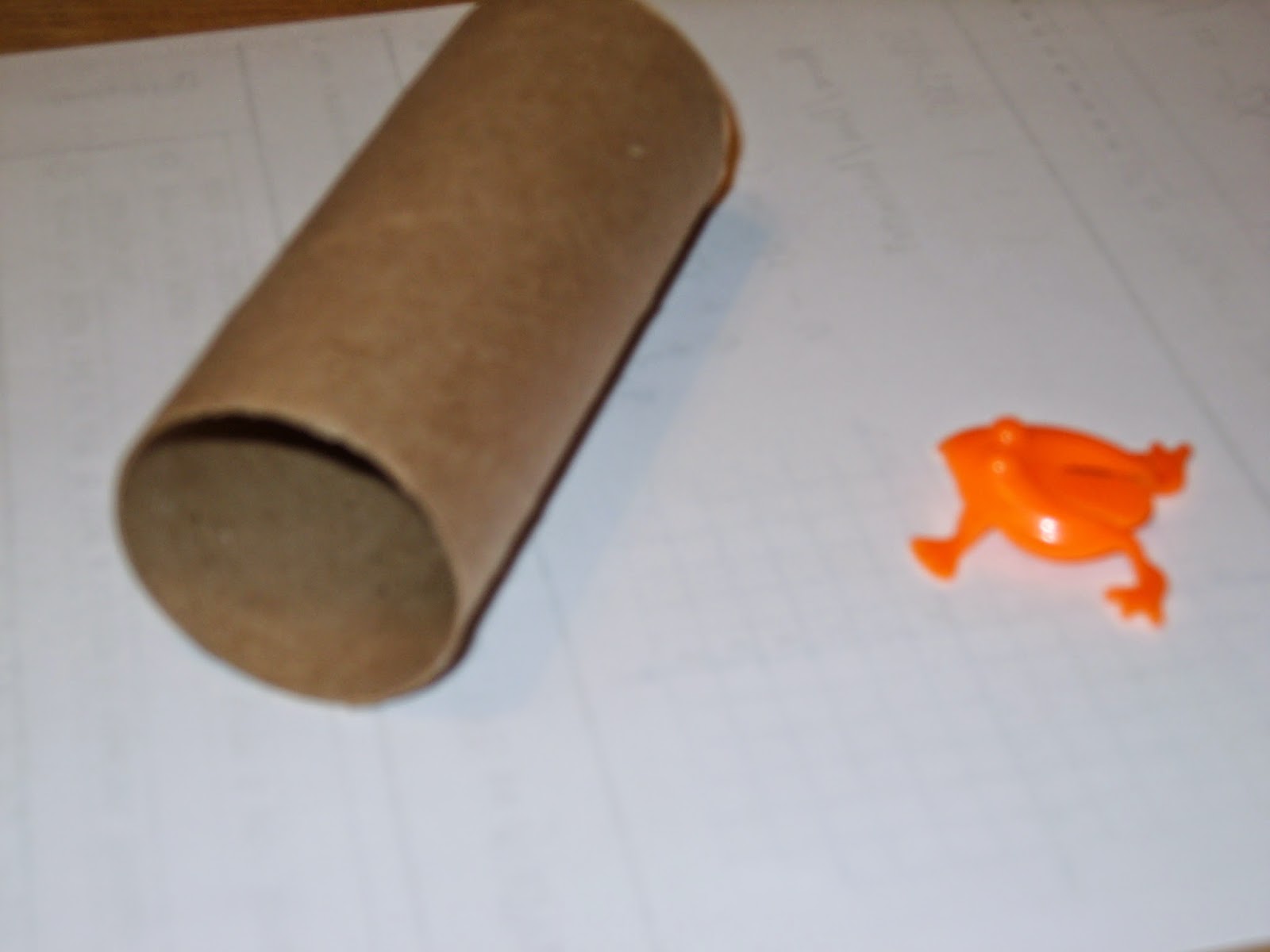Anyway, I started playing with the flippy frog instead of working diligently. I then started wondering if the frog could make it over the toilet paper tube. I thought it was a solid experiment and worthy of exploring. So, I did.
What I noticed was that sometimes, he didn't make it over the log.
Yet, other times he would make it.
Now, I realize that it doesn't take any great skill to know that this would happen. It fact, a small child probably could have told me what would happen. I started wondering if the frog was more likely to make it over the log (aka toilet paper tube) or not to make it. I hypothesized that it would be an equally likely chance that the frog would make it over the log. Well.. at least theoretically, it should. The operator plays a huge role in changing the chance of the frog making it over the log. My frog failed to make it over the log the majority of the time.
I could use this idea for a demonstration of theoretical v. experimental probability, but I wanted more to the lesson. So that led me to the question, at what distance is it improbable that the frog will make it over the log? At what distance is it almost certain that the frog will make it over the log? What then is everything in between those two distances? Are they all capable of producing the same probability? Where does it change?
Well, that led to another experiment. I made a little "football" style field. I marked lines at 1cm intervals and tried to find some answers to my questions, but I was left unsatisfied.
I feel like my students could determine a distance where it is improbable that the frog will make it over the log and where it was almost certain. I'm not sure that the data in between those points can be determined as easily without quite a bit of experimentation and data collection. There is nothing wrong with doing that, but I am wondering if it is an activity that will be valuable for the time that it would take. I was playing for over an hour. I know that we could do some group collection of data and analyze that. There would be value in doing noticing and wondering.
I am feeling unsatisfied by the results though, and it bothers me. Maybe because it seems that there should be a simple answer. However, maybe I am looking for a simple answer when their isn't one. There is even the possibility that the experiment doesn't support what I want to know and I need to revise. I'll have to keep thinking. Data and probability won't be until mid-year. Plenty of time to develop, modify, or throw out this idea.
If anyone has any thoughts on any of the questions that I posed, I'd be open to hearing your thoughts. I will be thinking about this some more. If I develop this farther, I will post what I did and anything that I used to guide the students.





